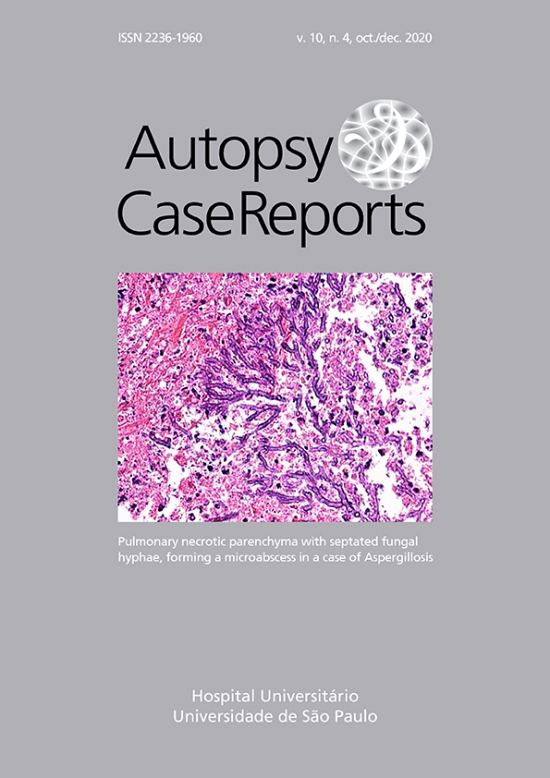Ulcerative colitis in the postpartum period
DOI:
https://doi.org/10.4322/acr.2020.187Keywords:
Colitis, Ulcerative, Postpartum Period, Diet Therapy, Labor Onset, EnvironmentAbstract
We describe a scarcely reported case in which ulcerative colitis (UC) occurred in the postpartum period. The aims of this case report are to reinforce the recent assertion that a diet is a ubiquitous environmental factor in inflammatory bowel disease (IBD) and that a plant-based diet (PBD) is recommended for IBD. A 29-year-old woman normally delivered her first child. She first noticed bloody diarrhea 4.5 months after delivery. She was diagnosed with UC (left-sided colitis, moderate severity). Sulfasalazine induced remission. She then experienced and learned about PBD during an educational hospitalization. She resumed breast-feeding and stopped medication. An interview and questionnaire revealed a change in her diet 3 months after delivery, from a sound diet (plant-based diet score: 25) to an unhealthy diet (score: 9). It happened along with a change in residence, from her parent’s home where her mother prepared traditional Japanese meals to her home where she prepared meals by herself. A feeling of release from childbirth prompted her to eat sweets and cheese despite being aware that the quality of the meals deteriorated. We described a scarcely reported case in which UC occurred in the postpartum period. It happened along with a change in her diet, from a sound diet to an unhealthy diet due to a feeling of release from childbirth. She replaced an omnivorous diet by PBD and stopped medication. The critical role of diet is largely ignored by healthcare professionals. We believe that greater appreciation of diet will change and improve management of IBD.
Downloads
Downloads
Published
Issue
Section
License
Copyright (c) 2020 Autopsy and Case Reports

This work is licensed under a Creative Commons Attribution 4.0 International License.
Copyright
Authors of articles published by Autopsy and Case Report retain the copyright of their work without restrictions, licensing it under the Creative Commons Attribution License - CC-BY, which allows articles to be re-used and re-distributed without restriction, as long as the original work is correctly cited.



